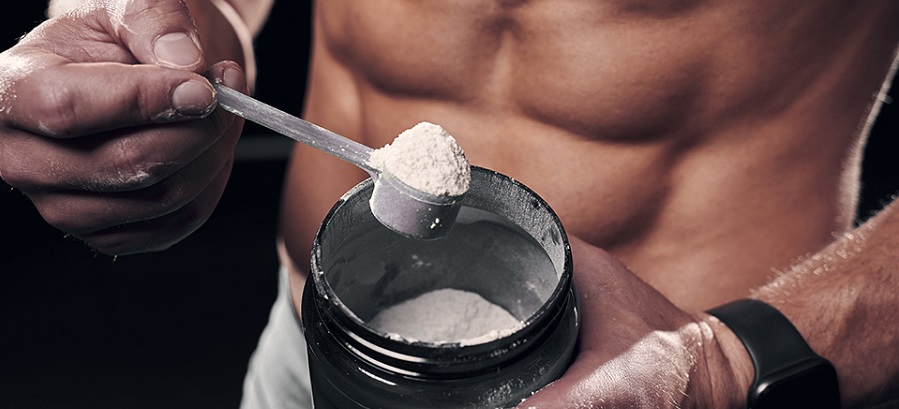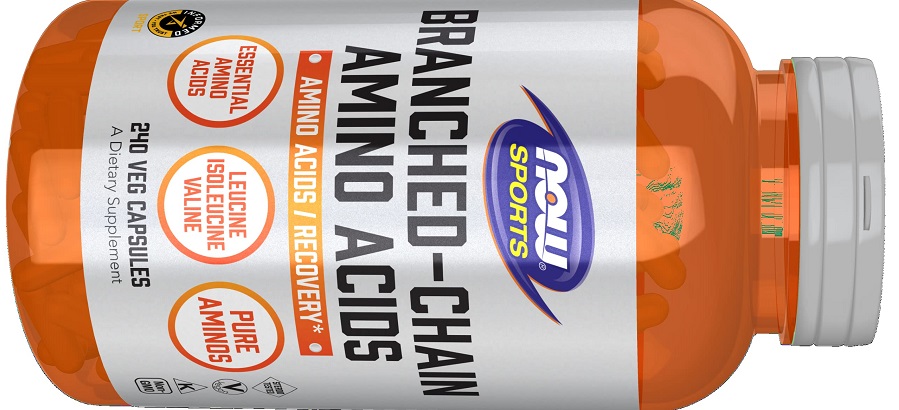Creatine is a naturally occurring compound found in small amounts in certain foods, such as red meat and fish, and is also produced by the body. It is stored in the muscles and used as an energy source during high-intensity exercise.
Supplementation with creatine has been shown to increase muscle strength and power, improve athletic performance, and enhance muscle mass. It is most commonly used by athletes and bodybuilders, but can also be used by individuals looking to improve their overall fitness and health.
There are many different brands of creatine available on the market, and the quality and purity can vary. Some popular brands include Optimum Nutrition, MuscleTech, and BSN. It is important to choose a reputable brand and to follow the recommended dosage instructions.
Creatine is generally considered safe, but some people may experience side effects such as stomach upset, muscle cramping, or weight gain. It is also not recommended for people with kidney or liver disease.
Creatine is available in several forms, including creatine monohydrate, creatine ethyl ester, and creatine hydrochloride. Creatine monohydrate is the most well-researched form and is considered the most effective.
Creatine can be taken on its own or as part of a pre-workout supplement. It is typically recommended to take creatine before or after a workout, with a carbohydrate-rich meal to increase its absorption. It is also suggested to cycle creatine by taking it for a period of time, then taking a break from it, then starting again.
Creatine is a popular supplement among athletes and bodybuilders, but it's not for everyone. It is always a good idea to consult with a doctor or a sports nutritionist before starting any supplement regimen.
What are the benefits of taking creatine supplements?
The benefits of taking creatine supplements include:
-
Increased muscle strength and power: Creatine supplementation can lead to an increase in muscle strength and power, making it easier to lift heavier weights and perform more reps.
-
Improved athletic performance: Creatine can help improve performance in high-intensity, short-duration activities such as weightlifting, sprinting, and jumping.
-
Increased muscle mass: Creatine may lead to an increase in muscle mass by promoting muscle protein synthesis and reducing muscle protein breakdown.
-
Improved recovery and reduced muscle damage: Creatine can help reduce muscle damage and inflammation caused by intense exercise, and accelerate recovery time.
-
Enhanced brain function: Some studies suggest that creatine may also have cognitive benefits, such as improved memory and reasoning.
-
Potential weight loss: Creatine may help you lose weight by increasing muscle mass and reducing muscle damage.
It's important to note that creatine supplements are not for everyone and it's always a good idea to consult with a doctor or a sports nutritionist before starting any supplement regimen. Additionally, creatine supplements may interact with certain medications, so it's important to speak with a healthcare professional if you're taking any medication.
How much creatine should I take and when is the best time to take it?
The recommended dosage of creatine varies depending on your goals and level of physical activity. However, the most common recommended dosage is:
- Loading phase: 20-25 grams per day for 5-7 days
- Maintenance phase: 3-5 grams per day
It is important to note that some people may not require a loading phase and can start with the maintenance dosage.
As for the best time to take creatine, it is recommended to take it before or after a workout, with a carbohydrate-rich meal to increase its absorption. Some studies also suggest that taking creatine in the morning on an empty stomach may be more effective for increasing muscle creatine stores.
It's also important to note that creatine should be taken with plenty of water to help prevent stomach upset and muscle cramping.
It's always a good idea to consult with a doctor or a sports nutritionist before starting any supplement regimen. Additionally, it's important to follow the recommended dosage instructions on the packaging and not exceed the recommended dosage.
Can creatine be used by both men and women?
Creatine can be used by both men and women. Creatine is a naturally occurring compound that is found in small amounts in certain foods, such as red meat and fish, and is also produced by the body. It is stored in the muscles and used as an energy source during high-intensity exercise.
Creatine supplements have been shown to increase muscle strength and power, improve athletic performance, and enhance muscle mass. These benefits can be beneficial for both men and women, who engage in weightlifting, sprinting, and high-intensity activities, and also for those who want to improve their overall fitness and health.
However, it's important to note that creatine may interact with certain medications, so it's important to speak with a healthcare professional if you're taking any medication. Additionally, it's always a good idea to consult with a doctor or a sports nutritionist before starting any supplement regimen.
Is creatine safe to use and are there any potential side effects?
Creatine is generally considered safe when used in recommended dosages and under the guidance of a healthcare professional. However, as with any supplement, there may be potential side effects.
Common side effects include stomach upset, weight gain and muscle cramping, but these are usually mild and can be managed by drinking plenty of water and following the recommended dosage.
In rare cases, creatine use has been linked to more serious side effects such as kidney damage, muscle injury, and cardiac arrhythmia. However, these side effects are more likely to occur in people with pre-existing health conditions, or those who take high dosages of creatine or use it in combination with other supplements or medications.
It's also important to note that creatine should not be used by people with kidney or liver disease, and also people who are pregnant or breastfeeding should avoid using it, as there is not enough research on the safety of creatine in these populations.
As always, it's a good idea to consult with a healthcare professional before starting any supplement regimen, and to stop using any supplement if you experience any adverse side effects. Additionally, it's important to follow the recommended dosage instructions on the packaging and not exceed the recommended dosage.
Can creatine be used in conjunction with other supplements or medications?
Creatine can be used in conjunction with other supplements and medications, but it's always a good idea to consult with a healthcare professional before starting any supplement regimen.
Some studies have suggested that creatine can be used in conjunction with other supplements such as protein powder, beta-alanine, and caffeine for added benefits. However, it's important to note that using creatine in combination with other supplements can increase the risk of side effects.
Additionally, creatine may interact with certain medications, so it's important to speak with a healthcare professional if you're taking any medication. For example, creatine may interact with diuretics, blood thinners and certain medications used to treat diabetes.
It's also important to note that if you are already taking other supplements, you should check the label to ensure you are not taking more than the recommended dosages of any one ingredient.
It's always a good idea to consult with a doctor or a sports nutritionist before starting any supplement regimen, and they will be able to advise on the best way to use creatine with other supplements and medications.
How long does it take for creatine to work and what are the long-term effects?
The effects of creatine can vary depending on the individual and their goals, but generally, it can take about a week for the benefits of creatine supplementation to become noticeable.
During the first week of use, also known as the loading phase, it is recommended to take a higher dosage of 20-25 grams per day for 5-7 days. This higher dosage will help saturate the muscles with creatine which will help to increase muscle strength and power, improve athletic performance, and enhance muscle mass.
After the loading phase, it is recommended to lower the dosage to 3-5 grams per day, during the maintenance phase. This will help to maintain the increased muscle creatine stores, and will continue to provide the benefits.
As for long-term effects, creatine has been shown to be safe for long-term use and most of the studies have been conducted for up to 24 weeks, however, it's not clear what the effects of using creatine for long periods of time are. Some studies suggest that long-term creatine use may lead to a small increase in muscle mass and strength, while others suggest that the benefits may decrease over time.
It's important to cycle creatine, by taking it for a period of time, then taking a break from it, then starting again. This can help to avoid the potential of diminishing returns and also help prevent the body from becoming too accustomed to it.
It's always a good idea to consult with a doctor or a sports nutritionist before starting any supplement regimen, and they will be able to advise on the best way to use creatine and the best durations of use.
Is creatine effective for weight loss or is it just for building muscle?
Creatine is primarily used to improve muscle strength and power, and enhance muscle mass, but it may also have some potential benefits for weight loss.
Creatine supplementation can increase muscle mass, and muscle tissue burns more calories than fat tissue. By increasing muscle mass, you may burn more calories at rest, which can contribute to weight loss. Additionally, creatine has been shown to improve athletic performance, which can lead to more intense and effective workouts, which in turn can lead to weight loss.
It's important to note that creatine is not a weight-loss supplement, and it should not be used as a substitute for a healthy diet and regular exercise. It is most effective when used in conjunction with a healthy diet and regular exercise.
Additionally, creatine may cause weight gain as a side effect, this is because creatine causes water to be retained in the muscle cells and may cause an increase in body weight. However, this weight gain is not due to an increase in fat mass, it is due to water retention and therefore the weight gain is temporary.
It's always a good idea to consult with a doctor or a sports nutritionist before starting any supplement regimen, they will be able to advise on the best way to use creatine and other supplements and also suggest the best way to lose weight and reach your fitness goals.


